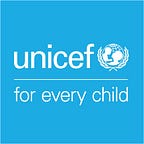Jumping into parkour
Two adolescents cope with life in Gaza
Gazans continue to recover from the 51 days of conflict that killed 1,462 Palestinian civilians, a third of them children, between July and August 2014. For two adolescent boys, 15-year-old Fares and 18-year-old Fahed, practising parkour helps them cope with life in Gaza.
(Left-right) Fares and Fahed take a ‘selfie’ on their way to practise parkour, in Beit Lahia, the city they call home. The boys often take pictures on their mobile phones and share them on Facebook — it is a way for them to connect with the world outside Gaza.
Fares and Fahed contemplate their next parkour moves. With its roots in military obstacle course training, the highly athletic activity requires great skill and concentration as walls, buildings and other structures are used while performing quick manoeuvres.
Fares completes warm-up exercises to decrease the risk of hurting himself.
“I don’t know about the future, but we live under siege, and this is the only thing that makes us feel free,” says Fares, who began parkour four years ago.
Fahed has been doing parkour for seven years.
Fares and Fahed often practise at the beach, where they can land on the soft sand or jump over the benches and stairs nearby. The boys’ 23-member parkour team once had their own clubhouse, where they could practise indoors, but the team can no longer afford the rent.
A parkour team from Italy that trained the team in Gaza for 15 days raised enough money to help the boys cover rent for six months, but it only temporarily delayed the loss of their space. Still, a quick trip by the old clubhouse makes Fahed ready to jump into action once again.
With Fahed’s father nearby, Fares and Fahed watch a video of their team. Since the boys are not allowed to travel outside Gaza, they use the Internet — between power outages that affect the area — to stay up to date with parkour trends around the world. Fares’s favourite parkour team is Russian.
When Fares was only 2 years old, he lost his father in another conflict and, now, can no longer remember him. The youngest of four children, Fares says he would like to become a doctor in the future.
Fares and his sister Rena, at home. Their mother cares for the family through a monthly contribution from the State of Palestine’s Ministry of Social Affairs, occasional support from the United Nations Relief and Works Agency for Palestine Refugees (UNRWA) and the help of extended family.
Fares’s morning routine includes completing strength-training exercises for about 15 minutes after breakfast; he also returns blankets and sheets to a cupboard in his family’s living room, where he and his brother sleep. His mother and sisters sleep in the home’s only bedroom.
(Left-right) Fahed and Fares do parkour atop destroyed buildings.
“Gaza is an end,” says Fares. “We live here because there is no other choice. This is the life we have, and we just make it work.”
Fares hangs from the staircase of a destroyed building. He recently broke his wrists and still has to be careful while performing some moves, so lately, he tends to focus more on activities that use his legs. Parkour carries risks, but Fares says he does not feel afraid.
Fahed performs a backflip. The boys say each team member should practise five hours daily, but that proves difficult without indoor space, especially since it is too hot and humid to perform physical activity outdoors before 5 p.m. during the summer.
In a building destroyed during the 2014 hostilities, Fahed jumps from a staircase, over an area open to the storey below, to reach another landing. Among the bystanders are members of a Dutch television crew making a feature about the boys’ parkour team.
(Centre, top) Fahed, with several of his teammates. While parkour provides an outlet, life in Gaza is still filled with many unknowns, but Fahed and Fares are bravely facing what lies before them, jumping with abandon toward the life full of vitality they are creating for themselves.
Learn more about UNICEF’s work in Gaza.
